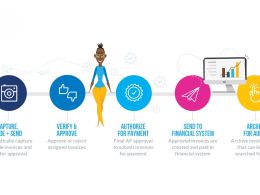Effective financial planning is essential for achieving your life goals, whether it’s buying a home, saving for your children’s education, or preparing for retirement. As we enter 2024, financial landscapes continue to evolve, bringing new challenges and opportunities. This article will explore the top financial planning tips for 2024, guiding you on how to build a strong financial foundation, adjust to changes, and achieve greater financial security. With a focus on simple and actionable advice, we aim to help everyone—no matter their financial situation—improve their financial well-being.
1. Set Clear Financial Goals
Before you can create a financial plan, it is important to set clear and specific goals. Your financial goals might include short-term objectives, such as saving for a vacation or emergency fund, as well as long-term goals, such as buying a house or planning for retirement.
Key Considerations:
- SMART goals: Ensure that your goals are Specific, Measurable, Achievable, Relevant, and Time-bound.
- Prioritization: Rank your goals by importance and set timelines for achieving them. This will help guide your savings and investment decisions.
When you set clear goals, you gain focus and direction, which will ultimately make it easier to stick to your financial plan.
2. Create and Stick to a Budget
Budgeting is a cornerstone of financial planning, as it gives you control over your income and expenses. It allows you to track where your money is going and helps prevent overspending.
Steps for Effective Budgeting:
- Track income and expenses: Use apps or spreadsheets to record your monthly income and expenditures.
- Distinguish between needs and wants: Prioritize essential expenses, such as housing, utilities, groceries, and healthcare.
- Allocate for savings and investments: Aim to save at least 20% of your income, allocating part of it to investments for long-term growth.
Sticking to a budget in 2024 will help you avoid debt and ensure you are saving enough to meet your future goals.
3. Build an Emergency Fund
An emergency fund is crucial for financial security. This fund acts as a buffer, allowing you to cover unexpected expenses, such as medical emergencies or job loss, without resorting to debt.
Recommendations for Emergency Fund:
- Size of fund: Aim to save at least 3 to 6 months’ worth of living expenses.
- Accessibility: Keep your emergency fund in a liquid, easily accessible account, such as a savings account or money market fund.
- Regular contributions: Set up automatic transfers to your emergency fund to ensure steady growth.
By building an emergency fund, you create a financial safety net that helps protect against unforeseen financial challenges in 2024.
4. Pay Down Debt Strategically
Debt can be a significant obstacle to financial freedom. In 2024, it’s essential to focus on reducing high-interest debt, such as credit card balances or personal loans, as they can quickly spiral out of control.
Debt Management Tips:
- Prioritize high-interest debt: Use the avalanche method (paying off high-interest debts first) to minimize interest payments.
- Consolidate loans: Consider consolidating your debts into a single loan with a lower interest rate to simplify payments and reduce costs.
- Avoid new debt: Be mindful of taking on new debt, especially for non-essential purchases.
Strategically managing and reducing debt is a key step toward achieving financial freedom in 2024.
5. Invest for Long-Term Growth
Investing is essential for building wealth over time, as it allows your money to grow at a rate higher than inflation. With the right investment strategy, you can achieve your long-term financial goals faster.
Investment Strategies for 2024:
- Diversify your portfolio: Spread your investments across a variety of asset classes, such as stocks, bonds, and real estate, to reduce risk.
- Automate contributions: Set up automatic monthly contributions to your investment accounts to build wealth consistently.
- Risk tolerance: Align your investment choices with your risk tolerance and financial goals. Younger investors might focus on growth stocks, while those nearing retirement may prioritize stability through bonds or dividend-paying stocks.
By investing for the long term, you can take advantage of compound interest and maximize your financial growth potential in 2024.
6. Plan for Retirement Early

The earlier you start planning for retirement, the better. Even if retirement seems far away, saving now ensures that you have enough money to live comfortably when the time comes.
Retirement Planning Tips:
- Maximize employer contributions: If your employer offers a retirement plan, such as a 401(k) with matching contributions, aim to contribute enough to receive the full match.
- Consider tax-advantaged accounts: Invest in accounts like IRAs or Roth IRAs, which offer tax benefits that can significantly enhance your savings.
- Increase contributions annually: Whenever your income rises (e.g., from a promotion or bonus), increase your retirement contributions to accelerate growth.
With careful retirement planning, you can enjoy financial independence during your retirement years.
7. Monitor and Adjust Your Financial Plan Regularly
Financial planning is not a set-it-and-forget-it process. In 2024, you should regularly review and adjust your financial plan to accommodate changes in your income, expenses, or financial goals.
Tips for Reviewing Your Plan:
- Annual check-ups: Schedule a yearly review of your budget, savings, investments, and goals.
- Track progress: Monitor your progress toward achieving financial goals, and make adjustments as needed.
- Be flexible: Life changes such as a new job, marriage, or the birth of a child may require you to revise your financial plan.
By continuously monitoring and adjusting your financial plan, you stay on track to achieve your goals, no matter what life throws your way.
Analysis Table
| Financial Planning Tip | Key Actions | Benefits |
|---|---|---|
| Set Clear Financial Goals | Define SMART goals, prioritize objectives | Provides focus and direction |
| Create a Budget | Track expenses, differentiate needs vs. wants | Avoids overspending, ensures savings |
| Build an Emergency Fund | Save 3-6 months of expenses, use accessible accounts | Financial security during emergencies |
| Pay Down Debt Strategically | Prioritize high-interest debt, consolidate loans | Reduces financial burden, minimizes interest |
| Invest for Long-Term Growth | Diversify, automate contributions, assess risk | Builds wealth, maximizes returns |
| Plan for Retirement Early | Contribute to employer plans, use IRAs | Ensures financial independence in retirement |
| Regularly Monitor Plan | Annual check-ups, track progress, adjust as needed | Keeps finances aligned with goals |
| Seek Professional Advice | Work with a financial advisor | Provides expert guidance, reduces stress |
Comparative Table
| Tip | Short-Term Impact | Long-Term Impact |
|---|---|---|
| Set Clear Financial Goals | Provides immediate clarity on priorities | Keeps you focused on achieving long-term goals |
| Create a Budget | Helps manage current spending | Builds disciplined financial habits |
| Build an Emergency Fund | Offers quick financial security in crises | Reduces reliance on debt for emergencies |
| Pay Down Debt Strategically | Frees up cash flow quickly | Improves credit score and long-term financial health |
| Invest for Long-Term Growth | Limited immediate returns | Significant wealth accumulation over time |
| Plan for Retirement Early | Limited short-term effect on lifestyle | Ensures comfortable and financially secure retirement |
| Regularly Monitor Plan | Allows immediate adjustments to changes | Maintains alignment with evolving goals |
| Seek Professional Financial Advice | Offers instant guidance on complex decisions | Helps build a robust, tailored financial strategy |
8. Consider Professional Financial Advice
If managing your finances seems overwhelming or you’re unsure how to reach your goals, consider seeking advice from a financial advisor. A professional can provide personalized guidance and help you make more informed decisions about your money.
Benefits of Professional Financial Advice:
- Customized plans: A financial advisor can help create a plan that aligns with your unique financial situation and goals.
- Tax optimization: Advisors can offer strategies to minimize your tax liability and maximize your savings.
- Peace of mind: Having an expert manage your finances can reduce stress and provide confidence that you’re on the right track.
Consulting with a financial professional in 2024 can make a significant difference in achieving your financial aspirations.
9. Prioritize Health and Insurance Coverage
Health is one of the most significant areas of financial planning that often goes overlooked. Medical emergencies can be expensive, and without proper insurance, they can derail your financial plans. In 2024, health and insurance coverage should be key priorities.
Insurance Planning Tips:
- Health insurance: Ensure that you have adequate health insurance coverage that suits your needs, whether through an employer or a personal plan.
- Life and disability insurance: Consider life insurance if you have dependents, and disability insurance to cover loss of income in case of an illness or injury.
- Regular check-ups: Preventive healthcare measures can help you avoid costly treatments down the road, making health and wellness a sound financial investment.
By prioritizing health and insurance, you can safeguard both your well-being and financial stability.
10. Tax Planning for Maximum Savings
Tax planning is another essential element of financial planning. In 2024, tax laws may have changed, so it’s important to stay up to date on the latest regulations to maximize your savings and minimize your liabilities.
Effective Tax Planning Tips:
- Take advantage of tax deductions and credits: Ensure you claim all available deductions, such as for retirement contributions or educational expenses, and credits like the Earned Income Tax Credit.
- Optimize retirement account contributions: Contributions to 401(k)s, IRAs, and Health Savings Accounts (HSAs) are often tax-deferred, allowing you to reduce your taxable income.
- Plan for capital gains: Strategically selling investments can help you lower capital gains taxes, especially if you can offset gains with losses.
By optimizing your tax strategy, you can ensure more of your income stays in your pocket, helping you reach your financial goals faster.
11. Protect Your Wealth with Estate Planning
Estate planning isn’t just for the wealthy—it’s an important step for anyone looking to protect their assets and ensure their loved ones are cared for after they’re gone. In 2024, setting up an estate plan can give you peace of mind.
Estate Planning Essentials:
- Create a will: A will ensures your assets are distributed according to your wishes and that minor children have designated guardians.
- Set up a trust: Trusts can help protect your assets and avoid the lengthy probate process.
- Review beneficiaries: Ensure that your beneficiaries on retirement accounts, insurance policies, and other financial accounts are up to date.
Estate planning may seem daunting, but with the right preparation, you can ensure your financial legacy is secure and your family is taken care of.
12. Stay Educated on Financial Trends and Tools
The financial world is constantly evolving, and staying informed about trends, tools, and new regulations is essential to effective financial planning. In 2024, digital tools and fintech innovations can simplify and enhance how you manage your money.
Ways to Stay Informed:
- Financial education: Read books, follow financial news, or take online courses to build your financial literacy.
- Leverage financial apps: Use budgeting apps, investment platforms, and robo-advisors to automate and optimize your financial decisions.
- Consult professionals: Engage with financial experts, or attend webinars and seminars to stay up to date on the latest strategies.
By staying informed, you’ll be better equipped to make decisions that enhance your financial future.
13. Teach Financial Literacy to Your Family
Financial planning doesn’t just affect you—it impacts your entire family. Teaching financial literacy to children and partners can set them up for long-term success and ensure that everyone is working together toward shared financial goals.
Steps to Teach Financial Literacy:
- Start early with children: Teach kids the basics of money management, including saving, budgeting, and the value of delayed gratification.
- Encourage open financial discussions: Have regular conversations about financial goals, challenges, and progress with your family members.
- Lead by example: Show your family the importance of disciplined saving, budgeting, and investing through your own actions.
By fostering financial literacy within your household, you help create a future generation that’s better prepared for financial success.
14. Practice Patience and Consistency
Financial success doesn’t happen overnight. It requires patience, discipline, and consistent effort. In 2024, maintaining a long-term perspective on your financial goals is key to overcoming setbacks and staying committed to your plan.
Mindset for Financial Success:
- Avoid short-term thinking: Resist the temptation to chase quick gains or make impulsive financial decisions.
- Focus on progress, not perfection: Recognize that financial planning is a journey, and small, steady improvements lead to significant results over time.
- Celebrate milestones: Reward yourself for reaching financial milestones to stay motivated and engaged in your financial journey.
Patience and consistency are the cornerstones of a successful financial strategy. Stick to your plan, and you’ll see your financial goals come to fruition over time.












